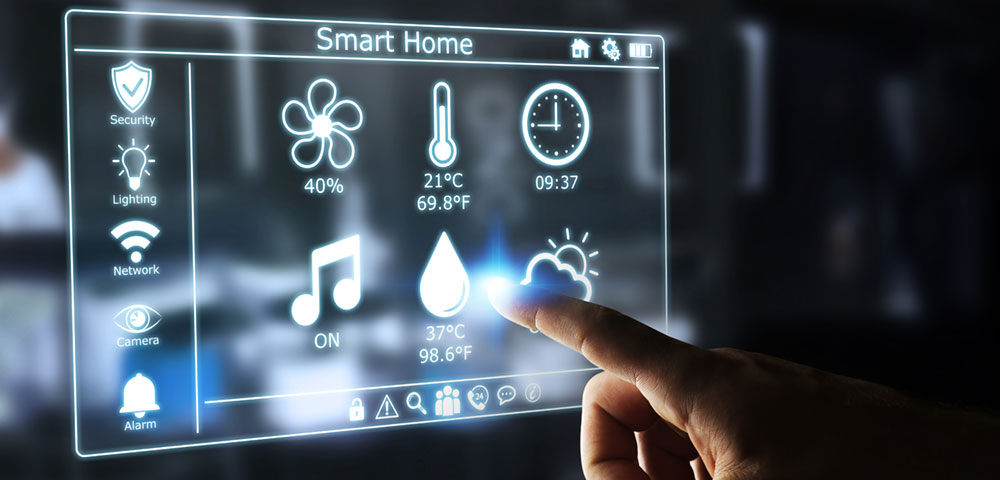
Innovative Water-efficient Smart Home Solutions for a Greener Tomorrow
Share
As technology advances, our homes are evolving into smarter and more sustainable environments. With the ever-present climate crisis, there is a growing focus on water-efficient smart home solutions. This transformation goes beyond mere convenience; it is a critical response to the increasingly scarce water resources we face across the globe. Tech innovators and enthusiasts are leading the charge, developing intelligent systems designed to optimize water usage in all aspects of daily living.
Water-efficient smart home solutions challenge conventional usage patterns by conserving water and minimizing waste. By automating water consumption and integrating sophisticated sensors, these solutions help reshape daily habits. As stories of water scarcity become more urgent, the demand for innovation that promotes sustainable practices is growing rapidly.

Understanding the Importance of Water Efficiency
Water conservation resonates on a global scale and is increasingly recognized by tech-savvy homeowners. Embracing innovations for water efficiency is not only an environmental necessity; it's also a wise financial strategy. By adopting water-efficient smart home solutions, homeowners can lower their bills and boost their home's sustainability credentials.
The environmental repercussions of excessive water consumption are well-documented. Daily waste puts immense pressure on local ecosystems, emphasizing the need for a systematic shift in our approach. Adopting a mindset focused on water savings guarantees that resources are preserved for future generations. For a deeper dive into the advantages of sustainable home technology, check out this insightful article on home automation ideas.
Revolutionizing Water Management with Smart Devices
Intelligent Irrigation Systems
In outdoor settings, intelligent irrigation systems are making significant progress. These systems utilize weather forecasts and real-time soil moisture data to dynamically adjust watering schedules, reducing unnecessary watering while promoting greener landscapes. By dramatically cutting water waste, these systems become essential for eco-conscious homeowners.
Smart Faucets and Showerheads
Inside the home, smart faucets and showerheads play a crucial role in diminishing domestic water usage. Often equipped with flow restrictors and motion sensors, these devices can be adjusted remotely to meet specific needs, resulting in a noticeable decrease in excess consumption.
Forward-thinking homes are integrating smart home solutions like these to foster sustainable living. For more on the benefits and management of these automated systems, visit this informative article titled smart leak sensor.
The Role of IoT in Water Conservation
The Internet of Things (IoT) is crucial in evolving traditional water systems into smarter solutions. Sensors placed in plumbing systems can instantly detect leaks, alerting homeowners to take action before small issues escalate into costly repairs. This proactive approach helps prevent unnecessary water loss and property damage.
Additionally, IoT-enabled systems can monitor water quality, ensuring that the water we use is safe and clean. As we confront multiple water quality challenges, these innovations empower households to uphold high standards of water purity with little effort.
Smart Leak Detectors
These devices inform users of leaks in real-time, bringing peace of mind. From kitchens to basements, leak detectors help curb water wastage by prompting timely repairs. Understanding green home technology trends, as detailed here, illustrates how small changes can greatly enhance a homes water efficiency over time.
Advantages of Implementing Water-smart Solutions
For tech pioneers, the design and implementation of these systems represent an exhilarating opportunity to merge innovation with environmental responsibility. Homeowners experience substantial cost savings by investing in water-efficient technologies. As more individuals transition to these solutions, the widespread benefits to the ecosystem become increasingly evident.
Moreover, smart technology simplifies water management. By centralizing control, users can effortlessly track their home's water consumption, identify inefficiencies, and adapt their habits using data-rich applications.
Challenges and Future Perspectives
While the advantages are compelling, challenges persist, particularly regarding initial investments and technology integration. Many homeowners are hesitant to commit to such solutions due to perceived complexity or cost. However, as technology evolves and prices drop, greater adoption is anticipated.
Future advancements will likely involve enhancing the functionalities of existing solutions and developing more user-friendly systems. The fusion of artificial intelligence with water-efficient smart home solutions promises to further revolutionize domestic water management. Such advancements are highlighted in a revealing report on green home water sensors.
Commitment to a Sustainable Future
The path to sustainability is achievable through intentional planning and active participation. Tech innovators and enthusiasts are pivotal in crafting water-efficient smart solutions that will define the sustainable homes of the future. As we confront ongoing environmental challenges, each step toward water efficiency contributes to a healthier, greener world for all.
For those interested in exploring more about the transformative potential of green technology, further insights can be found here.

FAQ
Q: What are the main components of a smart irrigation system?
A: Smart irrigation systems generally comprise weather-based controllers, soil moisture sensors, and anti-drain valves to optimize watering schedules effectively.
Q: How do smart leak detectors function?
A: Smart leak detectors utilize sensors to monitor moisture levels and notify homeowners of potential leaks via alerts, allowing for timely repairs.
Q: Are water-efficient smart home solutions expensive to set up?
A: While the initial costs can be high, the long-term savings in water bills and reduced environmental impact typically make the investment worthwhile.
